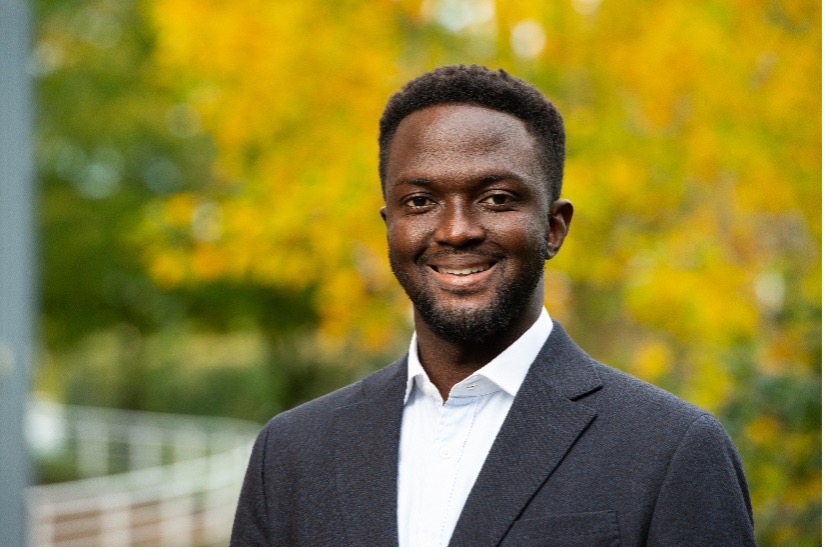
- Programme studied: PhD, Information Systems and Innovation
- Year of Graduation: 2017
- LinkedIn profile
Meet our Alum of the Month, Dr Atta Addo. Dr Atta Addo completed his PhD in Information systems and Innovation in 2017. His research interests is innovation and organisational change with a focus in developing countries. Since 2019, he is a lecturer at Surrey Business School, University of Surrey.
Tell us about your career journey since graduating from LSE.
I worked as an LSE Fellow in the department of Management for about 18 months after graduating from the PhD programme in June 2017. I then took a post at the Surrey Business School, University of Surrey as a lecturer in autumn 2019.
Can you provide a short summary of your PhD thesis and how it shaped the direction of your academic career?
My PhD thesis consisted of three papers that jointly explored challenges of improving the public sector in developing countries through information technology (IT). It was based on several months of case study fieldwork on IT implementations at Ghana customs to improve foreign trade clearance and mitigate certain dysfunctional practices. I found specific institutional and organisational barriers that hinder the pace of IT-driven change; but that these might improve over time as the patrimonial bedrock of organisational life also improves.
I always knew I wanted to focus on technology and organisational phenomena in developing countries, so my PhD was critical in not only developing my intellectual tool kit but also exposing me to nuances of doing research in developing country contexts, particularly in government settings. It also helped me — in a somewhat serendipitous way, since that was not my original focus — to develop expertise on information technology in anticorruption interventions in developing countries.
What has been the biggest challenge you have faced in your career, and what have you learned from it?
I have been fortunate to have a somewhat smooth sail. But I will say that in my transition to an academic career a big learning has been how to strike the right balance between self-reliance and asking for help from resourceful people you can trust. This supposes, of course, that one must themselves be a kind, resourceful person who can be trusted by colleagues and others. Whether we realise it or not, we are constantly paying back or paying forward.
What is your current research focus?
To invoke a popular quote attributed to Peter Drucker that ‘culture eats strategy for breakfast’ – it appears that in the organisational and social settings of developing countries, culture and various other challenges of the context eat even the most astute information technology strategies and cutting-edge systems for breakfast.
My general interest is to understand how and why this happens with specific information systems implemented in specific contexts. Without such an understanding, the potential promise of information technology for improving the human condition might never be fully realised in developing countries.
My recent research on information technology and petty corruption in customs was shared with a variety of key stakeholders in Ghana who found it transformative in their thinking around the role of technology in anticorruption. There is more to be done in impact as many challenges remain to the realisation of meaningful organizational and social change in developing countries through information technology. I’m open to engagement with actors from government, the third sector, and elsewhere interested in improving outcomes in developing countries through information technology and digital initiatives.
Share with us your fondest memory of the Department of Management.
During my MSc at the department between 2012-2013, my best memories were socialising and exploring London with friends.
During my PhD, the Tuesday afternoon PhD seminar and workshop series in the Information Systems Group was a weekly highlight because that was when the intellectual diversity and fervour of the group truly came alive. It was especially stimulating whenever we had a full house with all the faculty, PhD students and some alumni present. And when tensions occasionally got too high, getting beers at the nearby White Horse pub was always a welcome relief.